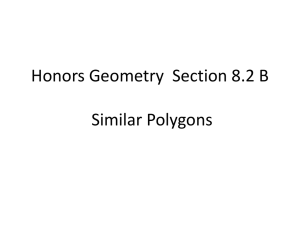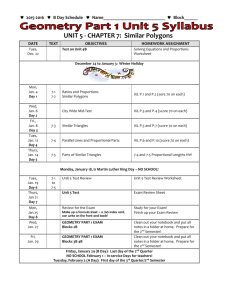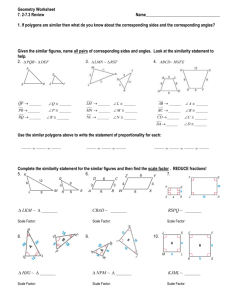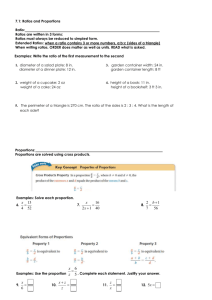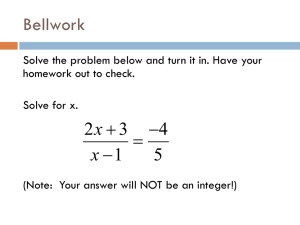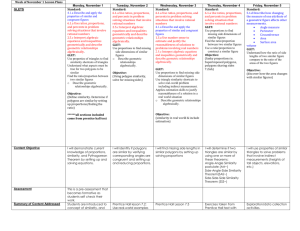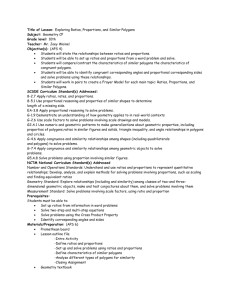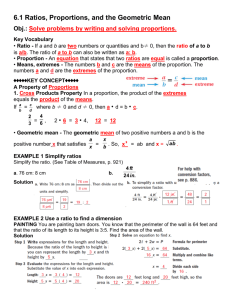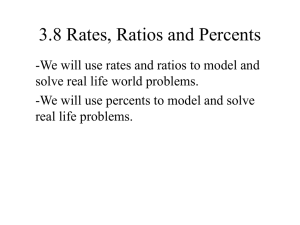Unit 4: Similarity
advertisement
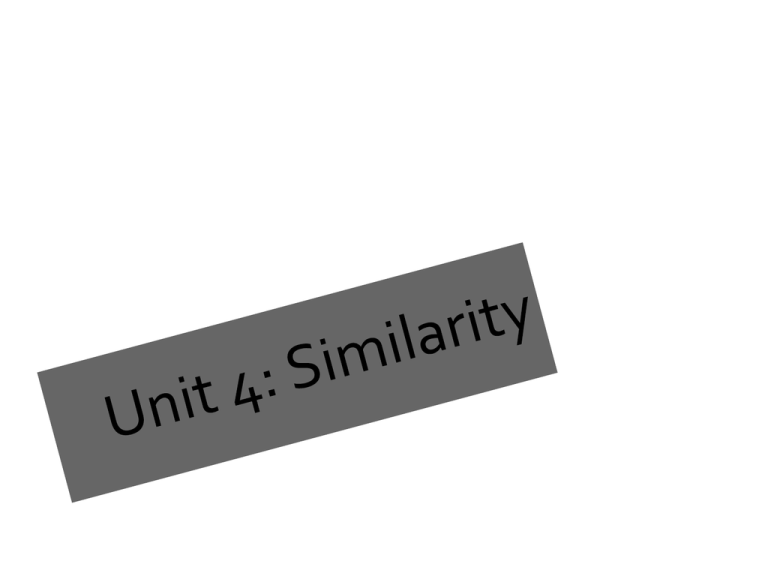
Warm Up 1. Write your own definition for similar objects. 2. What was the most difficult problem from yesterday’s test? 3. Many of you have come up with plans to do better on upcoming units. Are you doing these things? What can you do to continue to better prepare yourself during this new unit? Unit 4 – Essential Questions How can we use proportions and their relationships to describe similar figures? What theorems can we use to prove triangles similar? Bonus Question Hannelmore Kraus of Frankfurt, Germany, stopped the development of a skyscaper because she wanted her apartment to get its fair amount of sunlight. To halt the construction she used a German law that specifies that every homeowner is entilted to sunlight. Kraus was offered 1.6 million dollars to drop her lawsuit, but she refused. The skyscraper was scheduled to be 265 m tall and was to be built 60 m from Kraus’s apartment. Explain how Hannelore Kraus could use indirect measurement to estimate the length of the shadow of the building at a particular time of day. Unit 4 – Day 1 Objectives To write ratios and solve proportions To identify similar polygons To apply similar polygons 8.1 Ratios and Proportions A ratio is a comparison of two quantities. a to b a:b a , b ≠ 0. b A proportion is a statement that two ratios are equal. a c = b d or Properties of Proportions If then ad=bc (Cross Product Property) **Used when solving for a variable! Other Properties: If , then… Example – Solve 1. Example – Solve 2. Example – Solve 3. Which is equivalent? h k Which of the following proportions is equivalent to: = j m 1. 2. j k = h m m k = j h 3. 4. k m = j h j+k m+ j = j h 8.2 Similar Polygons Similar Polygons - Two figures that have the same shape but not necessarily the same size Symbol: ~ Similar Polygons Two polygons are similar if and only if: Corresponding angles are congruent AND 2. Corresponding sides are proportional Example: 1. Similarity Ratio The ratio of the lengths of corresponding sides is the Similarity Ratio The Similarity Ratio compares one object to another Similarity Ratio = 5:15 = 1:3 5 15 Scale Factor A Scale Factor is the number that you multiply by to resize a figure (make bigger or smaller) Review from Unit 1: (x, y) ® (cx, cy) In this algebraic rule for dilation, c is the scale factor Example ∆ABC ~ ∆JKL 1. Find the similarity Ratio of 1. Solve for the value of x. 1. Solve for m<J Classwork Practice 8-2 Homework 8-1 / 8-2 Worksheet
